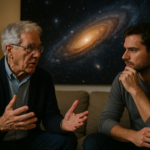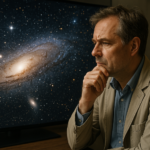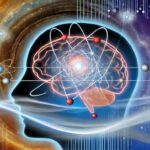Quantum Navigation: The Dawn of a Faster Atomic Compass Harnessing Quantum Mechanics to Revolutionize Precision Sensing and Navigation In recent years, quantum technologies have transformed our understanding of measurement and sensing, and one of the most striking advancements in this realm is the development of a faster atomic compass. Drawing inspiration from groundbreaking work […]
science
Species Universe offers posts dealing with the fundimentals of science that inspired the idea that the Universe is a Species.
More Companies Offer Fertility Benefits. It’s Only the Beginning
Navigating the Future of Work: Fertility Benefits and the Modern Employee How progressive companies are rethinking benefits to support family planning and employee well-being in the evolving workplace In today’s rapidly shifting employment landscape, fertility benefits are emerging as a cornerstone of modern employee support programs. As companies increasingly recognize that family planning is […]
5 Ways to Cope With School Violence Trauma
Navigating the Shadows: Healing and Empowerment After School Violence Strategies to Reclaim Safety, Strength, and Resilience for a Brighter Tomorrow School violence trauma casts a long shadow over its survivors, affecting both their mental and emotional landscapes. In our increasingly complex world, the journey toward healing is as individual as it is collective. Drawing […]
A conversation: consciousness and the connection to the universe – San Francisco Chronicle
Beyond the Veil: Exploring Consciousness and Its Cosmic Connection How Deep Conversations on Awareness Reveal Our Integral Role in the Universe In the modern era of scientific inquiry and spiritual exploration, the dialogue about consciousness has evolved into a vibrant intersection of quantum mechanics, ancient wisdom, and modern psychology. The article “A Conversation: Consciousness […]
The Future of Science 2021: A Multiverse of Exploration – Boing Boing
Exploring Infinite Realms: Unveiling the Multiverse of Scientific Discovery Journeying Through Revolutionary Ideas and Boundless Possibilities in the Future of Science In today’s rapidly evolving scientific landscape, the boundaries between the known and the unknown are blurring, giving rise to an era where traditional paradigms are continuously challenged. Inspired by the provocative ideas in […]
“Radically Different”. Klee Irwin discusses Emergence Theory & General Relativity
Ever since Einstein published his theory dealing with relativity, scientific world was intrigued by it and on a continuous quest to expand it and use it to explain different phenomena. Physicists of quantum space are also looking at the application of it, but they also look to modify it in the light of new, […]
The Universe Shouldn’t Exist, CERN Scientists Announce – Big Think
Defying Existence: Unraveling the Cosmic Paradox Exploring the Surprising Insights of CERN Scientists on the Universe’s Unlikely Existence In recent years, CERN scientists have stirred the scientific community with the provocative claim that, by all accounts, the universe shouldn’t exist. Drawing upon a blend of quantum mechanics and cosmology, the article “The Universe Shouldn’t […]
Experiment shows Einstein’s quantum ‘spooky action’ approaches the human scale – UNSW Newsroom
Title: Bridging the Cosmic Divide: Unraveling Quantum Spooky Action on a Human Scale Subtitle: How Groundbreaking Experiments Are Rewriting the Boundaries of Physics and Our Understanding of the Universe In recent years, quantum mechanics has increasingly challenged our classical perceptions of reality. Einstein famously derided the notion of “spooky action at a distance,” yet […]
Consciousness and Information
The Quantum Tapestry: Weaving Consciousness and Information into Reality Exploring the Nexus of Mind, Matter, and Meaning in the Universe In our ongoing quest to understand the fabric of existence, the interplay between consciousness and information emerges as a central theme, inviting us to delve into the very nature of reality. Drawing inspiration from […]
The Evolution of Consciousness: Insights from Quantum Mechanics
How Quantum Mechanics Sheds Light on the Nature of Consciousness and Its Role in the Universe Introduction Consciousness remains one of the most profound mysteries in science. While classical theories focus on neurobiological and cognitive aspects, recent advancements suggest that quantum mechanics might hold the key to understanding consciousness. This exploration is not only pivotal […]
- « Previous Page
- 1
- 2
- 3
- 4
- …
- 18
- Next Page »










